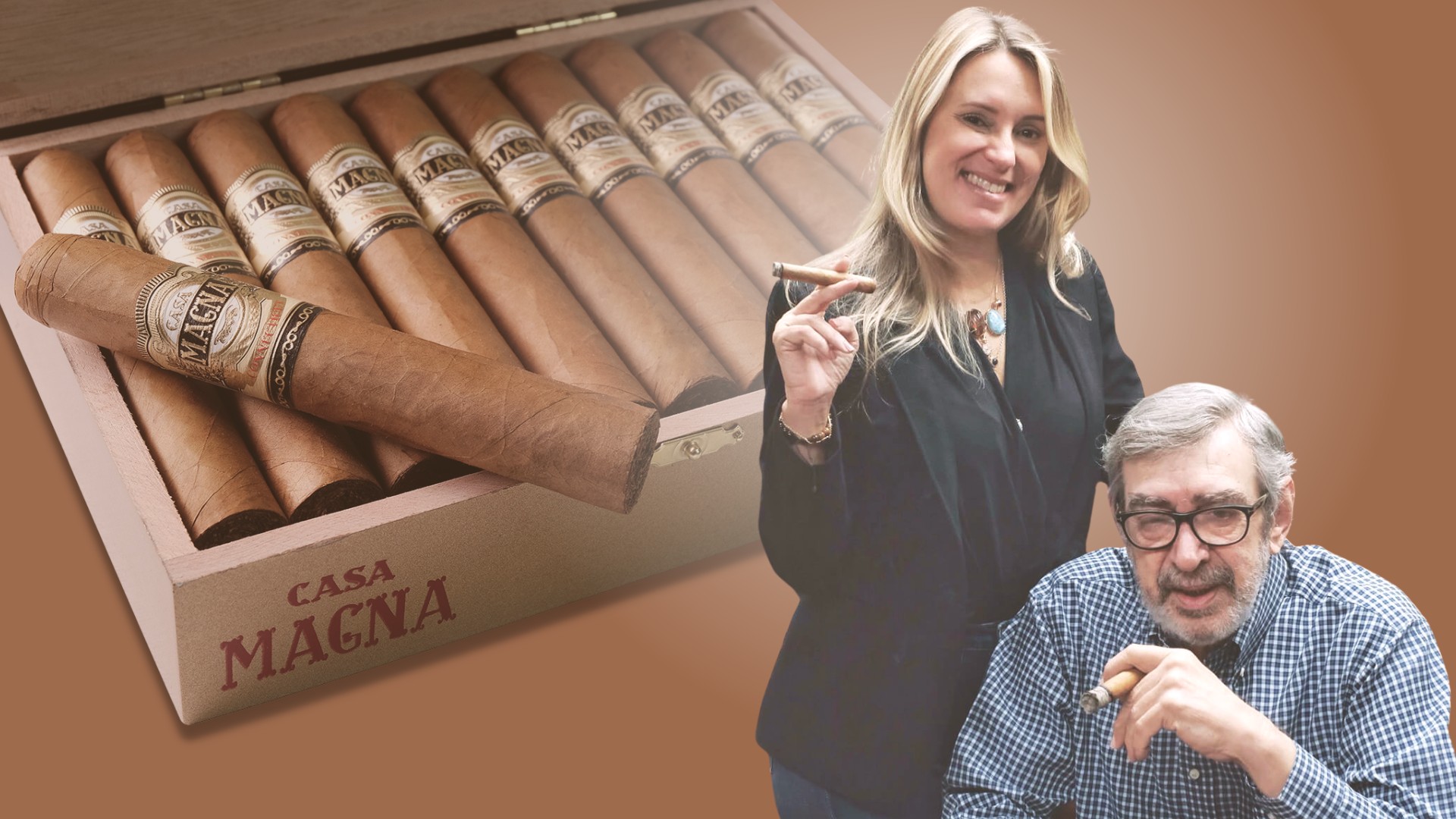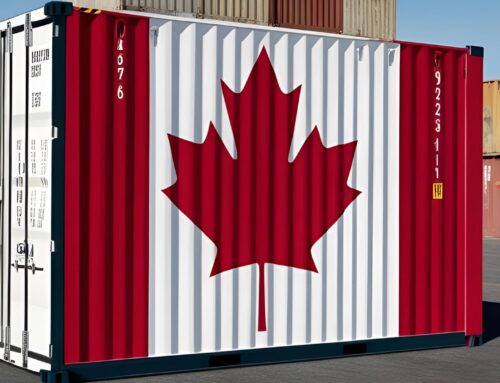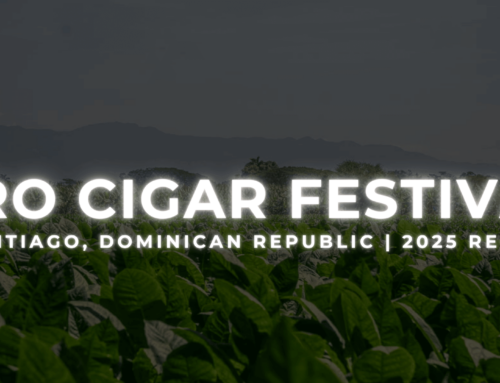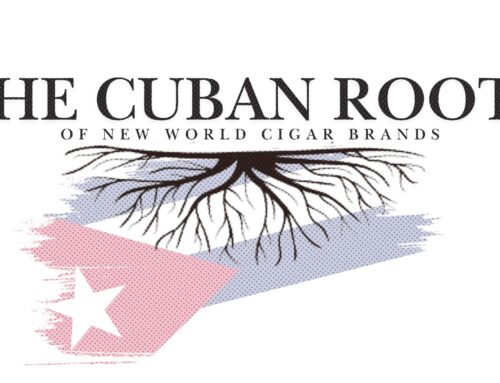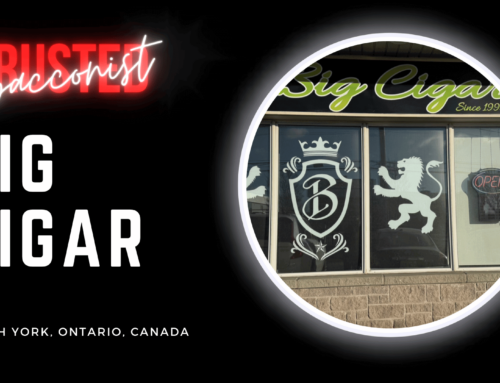In late November of 2022, House of Horvath conducted a virtual cigar tasting and Q&A session with legendary cigar maker Manuel “Manolo” Quesada and his daughter Raquel
A select group of tobacconists from across Canada were invited to the event, and were treated to a special evening of conversation with the Quesada pair. Participants were also afforded the pleasure of smoking two new Casa Magna releases: the Connecticut and the Liga F, while a roller and buncher from the Quesada factory assembled cigars before everyone’s eyes.
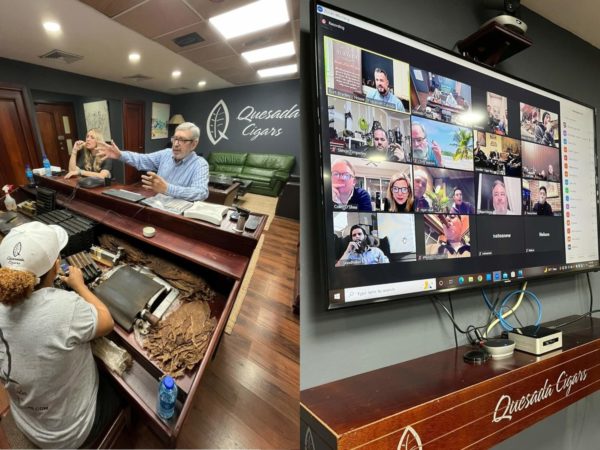
Manolo Quesada addresses a virtual collective of Canadian tobacconists
As expected, a wealth of cigar knowledge and history was shared by Manolo and daughter Raquel.
The following are excerpts of conversation between House Horvath Brand Ambassador Kurt Bradley and Manolo and Raquel Quesada, and is part 2 of a 2 part series:
Kurt: Raquel, you are deeply involved with the Pro Cigar Association in the Dominican Republic. Including Quesada, the Association has 11 members ranging from La Aurora to LFD to Tabacalera Palma. How does Quesada strike a balance between camaraderie and competition with the other Pro Cigar Members?
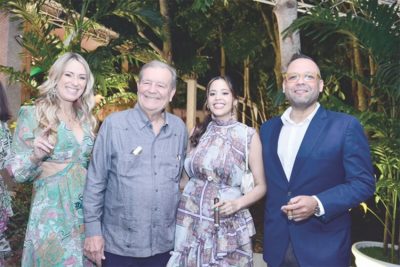
With Pro Cigar Association members (left to right) Raquel Quesada, Henrik Kelner (Pro Cigar President), Nirka Reyes (De Los Reyes Cigars), Abe Flores (PDR Cigars)
Raquel: Pro Cigar is an amazing association. My father was one of its seven founders in 1992. Everyone is so amicable. Right from my beginnings in Quesada, if I ever needed anything – a bale of tobacco, packaging, cellophane – whatever – all I had to do is call, and someone is available to help. Though we are competitors on the international market, we share, and we work together. There is no conflict.
Manolo: One of the premises of Pro Cigar is that we must maintain that the Dominican Republic is known for great cigars the world over. In Dominican Republic we have a lot of governmental institutions that deal with our business. It is better to have one united front to deal with these institutions and get things resolved so we can focus on elevating the stature of Dominican Republic-made cigars in the eyes of the world.
Of course, after these things are taken care of, then we all don our pirate suits – knife in mouth – and go out to kill each other [laughing]. In Dominican Republic we’re very good friends, but outside, we’re very good competitors.
Kurt: It is our understanding that during the cigar boom of the 1990s, you had the opportunity to make a quick buck as demand was greater than supply. You could have profited greatly by simply pumping out cigars, but you clearly decided against that. What motivated you to make this decision?
Manolo: Well, many years ago, Joel Sherman [of the Nat Sherman family] and I were together in Arizona for a convention. At one point during a conversation with me, he stated that he felt that the Native Americans were the guardians of the territory, and that it was their responsibility to preserve and maintain that territory for the generations that come afterwards. These sentiments really express what we [Quesadas] feel as a family, which essentially started with my great grandfather in 1886 onward; we are not owners, we are not bosses, we are guardians of the business.
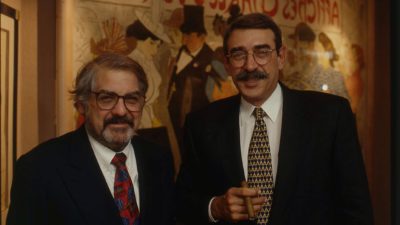
Manolo Quesada with Cigar Aficionado Publisher Marvin Shanken in 1998 [Image: Cigar Aficionado Magazine]
Raquel: And I’m very grateful for that.
Kurt: In the Dominican Republic cigars are now known as a cultural heritage product. What does this entail?
Manolo: As we have become such a cigar country, we have put the Dominican Republic on the map when it comes to tobacco. Because of the cultural heritage of tobacco in the Dominican Republic and the pressings of Dominican cigars in the market, our government decided to make tobacco a cultural heritage product.
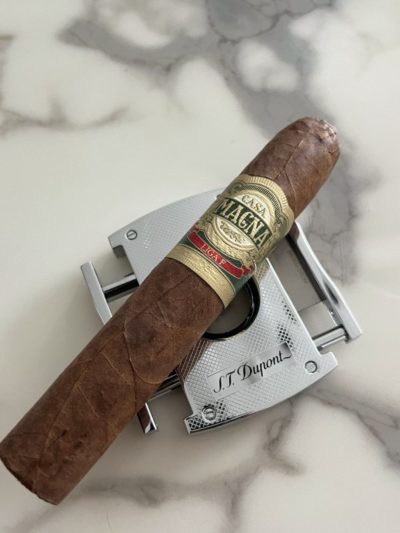
We’re very proud and very fortunate to have a government that realizes the importance of tobacco in history and in present times as well, in contrast to other governments that aren’t as friendly or as helpful towards tobacco, cigars and so on.
“Exactly a year later to the day, they walked into the office and told us “Don’t ever come back”. From the office we went to the airport and left Cuba, and that was the end of that.” – Manolo Quesada
Kurt: Some cigars seem to be more drying on the palate than others. What makes one particular cigar to have a more drying effect than others?
Manolo: There are certain tobaccos that you have to be very careful with when blending. These include the Olor from Dominican Republic, the Mata Fina from Brazil and the Ometepe from Nicaragua. These tobaccos can have a very harsh effect on the blend. The Olor will dry your palate. The Mata Fina has a lot of sweetness to it, so it will overwhelm. The Ometepe has a taste that if you abuse it, it will dominate the blend and make for a very one-dimensional cigar. The impact on the palate is to be balanced rather than extreme. A dry palate is not good, but also a very moist palate is not good either. You have to find that balance with the right moisture so your palate and your nose can have a lot of fun with the smoke that is coming in.

The Casa Magna Colorado Robusto
Kurt: Manolo, could you take us back to the time during the Cuban revolution that your family’s company was seized and taken over by the new Cuban government?
Manolo: It was a Saturday and I was 12 years old. I was at the factory with my father and my brother. In the morning, a Jeep stopped at the front door. Four guys with rifles and one skinny guy wearing a tie got out and told my father to take them to the safe box. They told him to shut the safe box and they put a seal over it. They told us to leave and to come back on Monday when an “interventor” would come to tell us what was going to happen. So, my father took us home.
Next week they came and told us “you will be here for a year and you will tell us how to run this business”. Exactly a year later to the day, they walked into the office and told us “Don’t ever come back”. From the office we went to the airport and left Cuba, and that was the end of that.
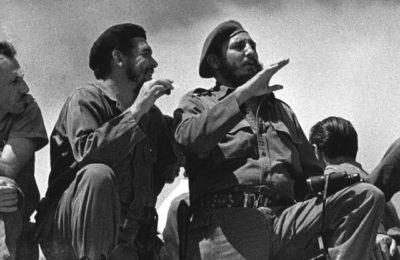
Cuban Revolutionary leaders Che Guevarra and Fidel Castro
We re-established ourselves as leaf brokers in Dominican Republic 1961. We had showed up in August, shortly after the dictator Trujillo was killed in May. Later in 1965, they had a revolution and we all thought this was going to be a replay of Cuba. So we spent the revolution under our beds here in Santiago until Lyndon B. Johnson sent the marines down to stabilize everything. After that we just kept on going, working away.
Kurt: At presently 111k followers on Instagram, you’re clearly in-tune to the power of social media. How do you manage to balance your time between the Quesada factory, being a mom and wife and maintaining your obligation to ongoing social media content? Do you have an assistant or something?
[Manolo points to himself, indicating that he is her assistant, they both share a laugh]
Raquel: Well, I was raised with the discipline to be organized, to set priorities and be on time for things [she says this while looking at her father, coyly smiling]. I think that gave me a lot of good schooling for managing all these things. I have to travel for work, and I have to travel for my son who is an amateur golfer who travels around the country, Europe and other places for golf. I organize each day. Setting priorities and being disciplined is what it all boils down to.
Kurt: Aside from coffee – which seems to be most people’s favorite thing to pair with a cigar these days – what drink is your favorite to pair with a cigar?
Raquel: For me I would say beer, when we have cigars with our employees.
Manolo: I would say for me it would be a single malt [scotch] – but not the peated kind, I can’t do that stuff.
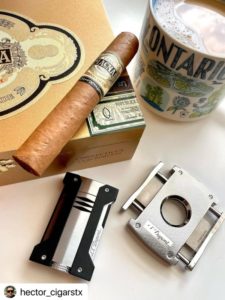
Kurt: Speaking of beer, you release an annual Oktoberfest cigar which is made to be paired with beer. Can you tell me a little more about that?
Manolo: Blending is fun; you’re taking tobacco from different countries, different farms and different primings. It’s a wonderful experience. When we first blended for Oktoberfest, we brought the fun to an even higher level. We were drinking and smoking, and that was one helluva fun project. And given that every year we have to tweak the blend a bit, we have to drink more beer and smoke more cigars. There’s a definitely a lot of suffering involved but we manage [both have a laugh].
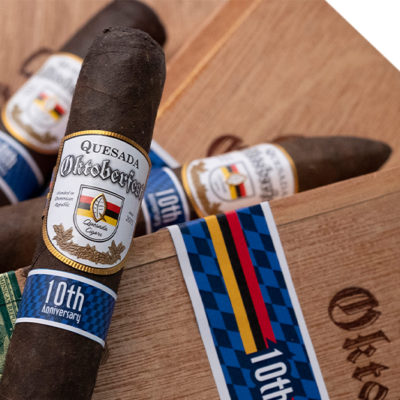
Kurt: Manolo, you are among a select group to be exalted into the cigar Aficionado Hall Of Fame. As far as your legacy goes, what would you like to be remembered as?
Manolo: Well, that I was a handsome guy [laughs]! The only thing I want to be remembered as is someone who throughout my life did my very best to make cigars that bring pleasure to the smokers. I have worked in tobacco since I was 13; 62 years in tobacco and 49 years in cigars, and as always, my goal has been to make cigars that are enjoyable; cigars that are companions; cigars that are friends rather than enemies or antagonists. I want the people to remember me as someone who made cigars that could be smoked and enjoyed and then smoked and enjoyed again in the same fashion as they were a week, a month or a year ago.
That is how I would love to be remembered.
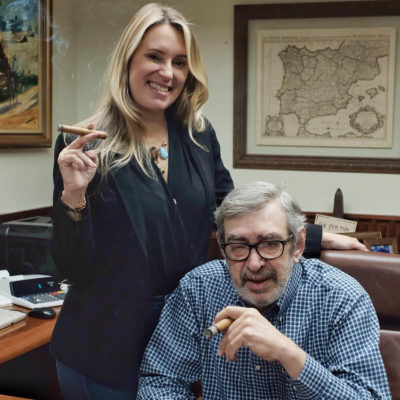
[This concludes Part 2 of a 2 part series. Read Part 1 of the Quesada interview HERE]
